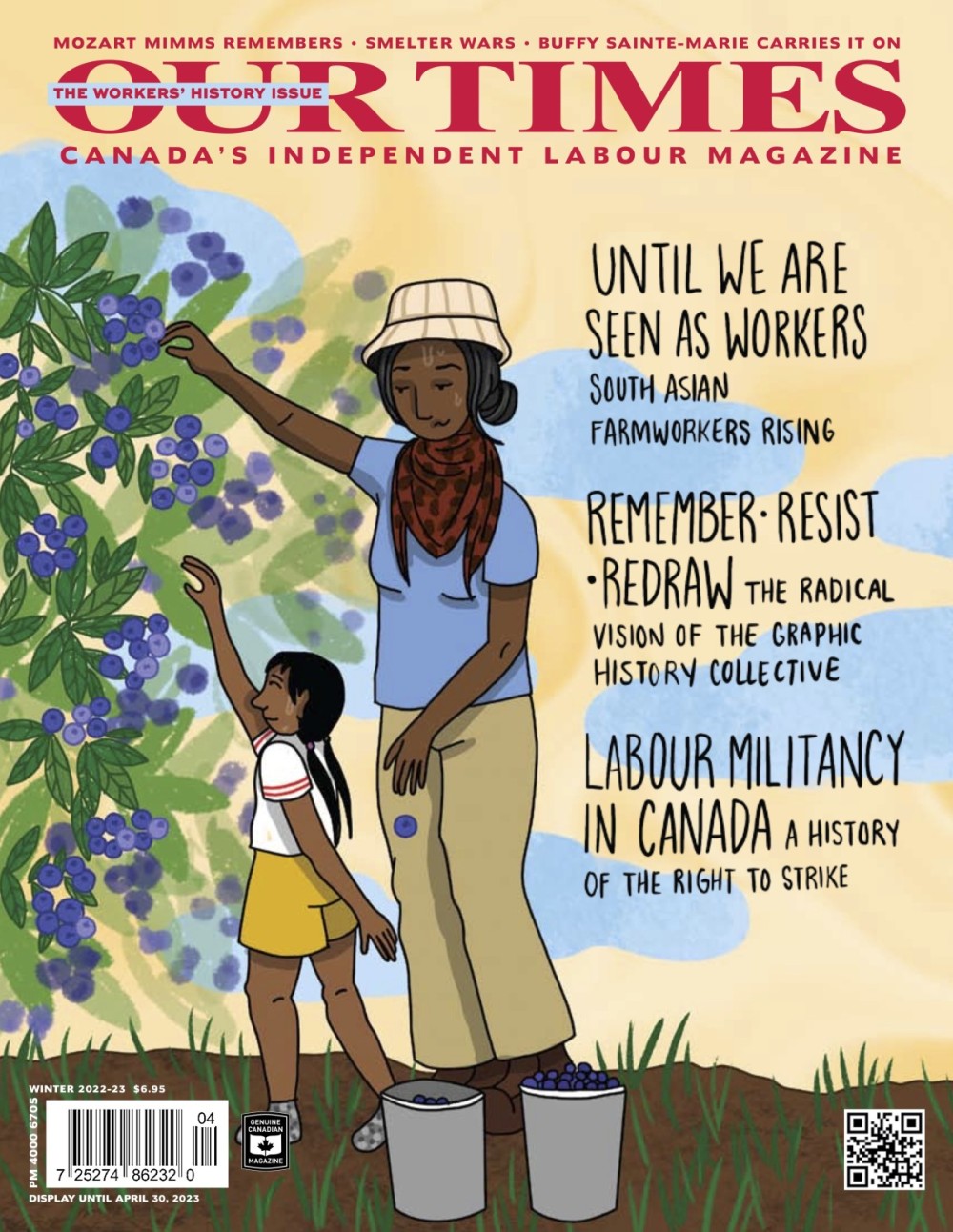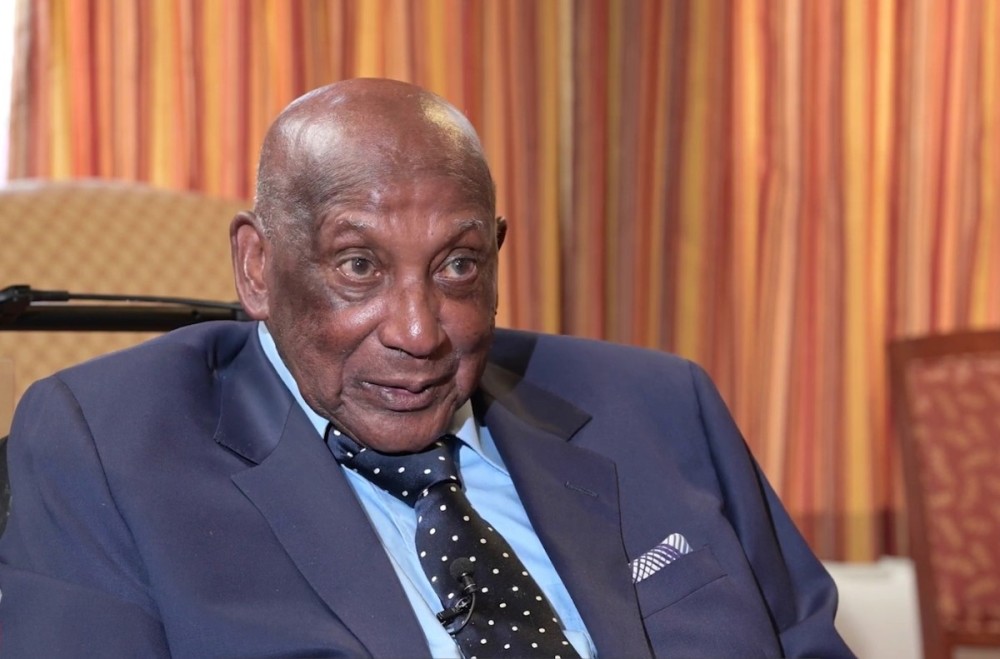In August 2022, 104-year-old activist and former union leader Mozart Mimms was honoured by Unifor with the Neil Reimer Award. Named after the revered trade unionist, activist and politician, the award is given to a person for their outstanding contribution to the public good.
“Someone said, ‘How do you feel being 104 years old?’ And I said, ‘Well, I’m not sure, because this is the first time I’ve ever been this old,'” quipped Mimms in a recent interview with Christine Maclin, Unifor human rights director; Ruth Price, former Black, Indigenous, Workers of Colour vice president; and Dudley Green, a member of Local 111’s Black, Indigenous and Workers of Colour committee.
Mimms was born in 1918 in Allensville, Kentucky, just before the end of the First World War. Growing up during segregation, he went to an all-Black school just outside of his hometown, began four years with the U.S. Army in 1941, and earned a degree in geography from Tennessee State University.
Now living in Westminster, BC, Mimms first arrived in Vancouver in 1952 to begin his career with the Canadian Pacific Railway, initially as a sleeping car porter, then as a porter instructor, platform inspector and later, to VIA Rail, as a service manager. All told, Mimms spent 32 years of his life working with the Canadian Pacific Railway and VIA Rail.
Sleeping car porters played an essential role on Canada’s railways. On the job, they experienced racism, exploitation, poor working conditions and tremendous precarity. Seventy-two-hour trips were common, with porters often sleeping no more than three hours a night, usually on nothing more than a small seat.

This article is from our Winter 2022-2023 Workers’ History Issue. Head to ourtimes.ca/magazine to see what’s in the latest issue.
Travis Tomchuk writes: “They were responsible for greeting passengers, stowing baggage, setting up berths in the evening, converting berths to seats in the morning, shining shoes, brushing off coats and hats, looking after sick children and adults, dealing with passengers who had had too much to drink, babysitting children, and doing anything else the passengers required. Porters also had to police passengers and be on the lookout for thieves, gamblers and troublesome folks.”
Low wages meant that porters were forced to rely on tips to supplement their incomes. Before unionization, they could be fired for as little as one passenger complaint.
“People would look upon us as servants,” said Mimms during the interview. “Even in the better days. You had to be friendly and be careful of what you’d said to a customer, because they might report you as not being nice to them.” On the subject of being forced to deal with racism while needing to provide for one’s family, Mimms said “it had quite an effect. Sometimes you had to pretend you didn’t see something that you saw and heard . . . I think [Black workers] tolerated it. If you wanted a job, you had to take a second-class job.”
During his career, Mimms served on an employee grievance committee and served as president of the Brotherhood of Sleeping Car Porters.
“Before the union, for workers from Vancouver to Toronto . . . if [the train] was five hours late, you didn’t get paid extra for the five hours,” said Mimms. “We got the union, then you had to be paid for overtime. They also got their holiday pay. They got their sick leave paid. So, it was a great thing that happened.”
There have been some leaps in racial justice, Mimms believes, but there’s still lots more work to do.
“I never thought I’d live to see a Black mayor,” said Mimms, who is the grandson of enslaved people. “When I was growing up, segregation was king, 100 years ago,” he continued. “I think we still have to fight harder. We’re not at the goal line yet.”
Unions continue to play a pivotal role — not only in fighting for workers’ rights, but also in elevating racial justice, said Mimms. “Unions help so many people that never have been helped before.”
As organizer Stanley G. Grizzle writes in his book My Name’s Not George: The Story of the Brotherhood of Sleeping Car Porters in Canada, “We did not bow down to the racism and the segregation imposed on us. We stood up for our rights and founded the Brotherhood of Sleeping Car Porters.”
Mimms recalled, “When I started working on the railroad, there were very few Black sleeping car conductors, but the union got together and pursued [their agreements] and then companies started hiring more. When the union organized, it gave us a better way of life.”
Unifor/Our Times
Activist and former president of the Brotherhood of Sleeping Car Porters, Mozart Mimms was honoured with the Neil Reimer Award in 2022. To read more about the experiences of Black sleeping car porters and their fight to ensure their rights on the railways, visit The Canadian Museum for Human Rights online at humanrights.ca.











